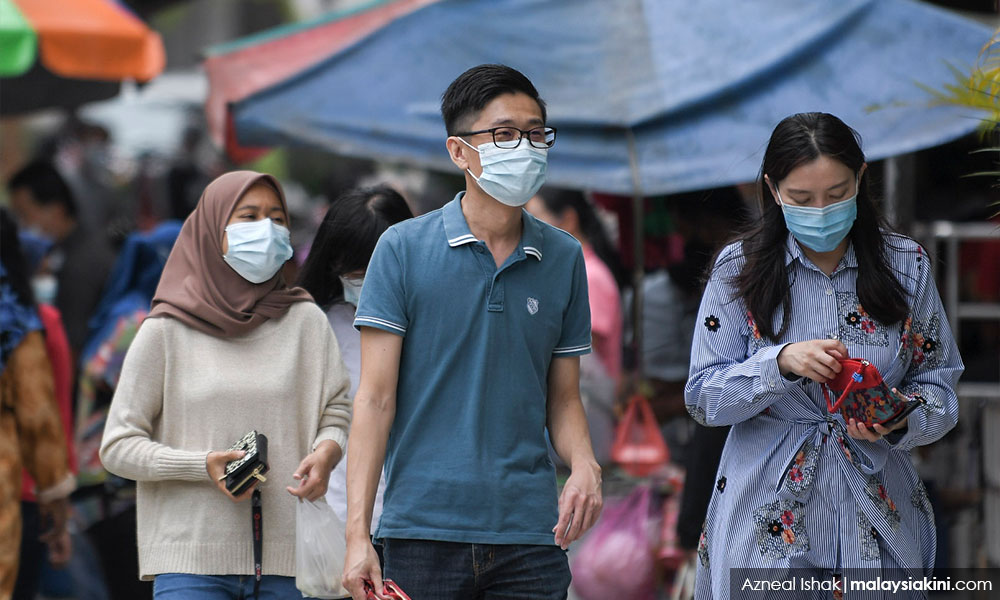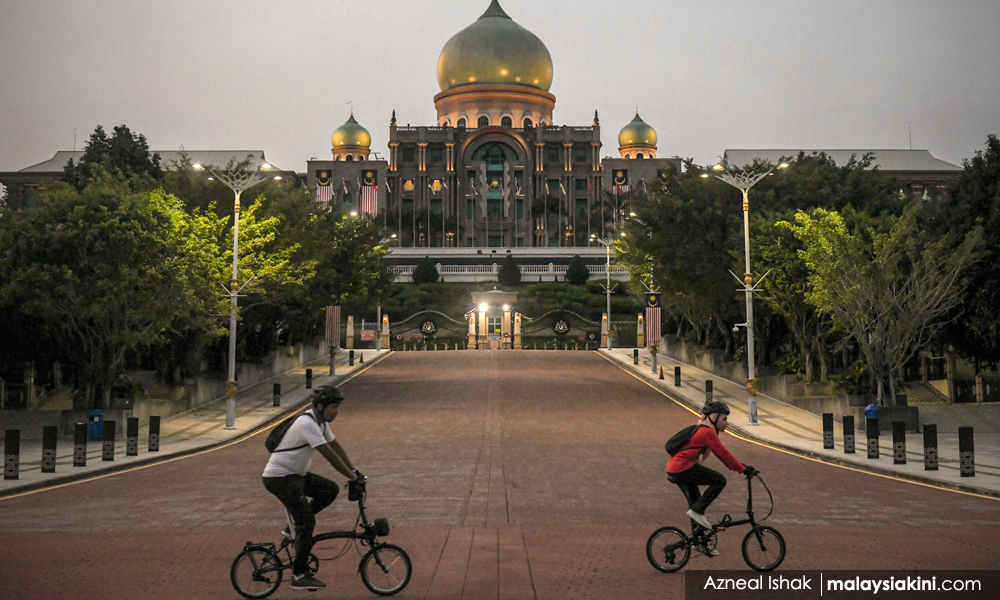Young people are often reminded of the great promise of tomorrow, where they will be leaders of the nation. In the meantime, they live in the here and now, where every ringgit spent is a stressful decision to make.
There is no certainty, very little comfort, and not much to hope for. No one would like that.
The usual disclaimers naturally apply, some people (even young people) find themselves doing very well during this time of crisis, many still have a roof over their heads and food on the table despite the difficulties that they’ve faced in the past 18 months.
However, we cannot ignore the bleak waves of pessimism that have been beating upon our shores, just because shopping malls are slowly filling up with people again.
Some kind of normalcy is returning, but not one that ever was kind to younger generations. The problems amplified by the pandemic: precarious jobs, underemployment, low wages, unequal wealth distribution, weak bargaining power, malnutrition and so on; will remain.
These frustrations have simmered and will continue to spread as successive generations of young people enter adulthood to similar situations. Can we afford to wait and see what happens when those frustrations finally boil over?
The hard questions need to be attended to, and that must start now. Our representative democracy should, in theory, be a means to raising and resolving these issues through our elected representatives.
However, the protracted political wobble has left little attention to issues beyond a government’s longevity or lack of it.
It is no surprise that a recent Merdeka Centre youth survey found that 70 percent of respondents aged between 18-30 were not interested in politics. They also had an unfavourable view of politicians, and were uncertain whether they had a place in determining the country’s direction.
Reach out, reset, reform
Of course, it is not just the young that feel this way. One only needs to explore the multiple initiatives that have emerged in the past year to get the public’s political pulse. There is a general sentiment that the system, as it is operating today, needs to be reset and updated.
One example is the Better Malaysia Assembly, championed by Universiti Kebangsaan Malaysia’s Anis Yusal and former CIMB chairperson Nazir Abdul Razak, which advocates the creation of a trusted and inclusive council to nudge the government’s policy and legislative agenda in the right direction.
Though Tun Razak’s National Consultative Council (NCC) was named as a model for the council, we can also see shades of the pre-independence Putera-AMCJA’s public meetings and consultations to draft the Perlembagaan Rakyat, which contained a series of proposals to the British colonial authorities.
While these historical precedents had vastly different approaches and relationships to power, both of them emerged during a time of great transition within society.
It is interesting to note that the composition of these two historical examples was fairly youthful, by today’s standards. Most of the participants of the NCC in 1970 were in their 30s and 40s and had a large part to play in influencing the government agenda, which continues to impact us to this very day.
This is not to fixate on the age of policy-makers (or influencers) but to emphasise that government decision-making needs to contain meaningful inclusion of representatives from a broad range of backgrounds, origins and ages.

Since many of today’s issues disproportionately affect younger generations more, new consultative councils must include representatives from among young workers, intellectuals and the precariat.
We can also pick up a few lessons on the process of reform from our next-door neighbour Indonesia. After then-president Suharto’s resignation in 1998, a broad committee was formed under the People’s Consultative Assembly (MPR), Indonesia’s Parliament and involved members of their legislature in proportional numbers.
The committee was mandated to introduce reforms through constitutional amendments. The process involved experts, consultation sessions across the country and international study missions before the committee’s proposals were finalised and handed over to the MPR for tabling in the legislative councils.
Though the process was not without its faults, this gives us an example of how major reforms on separation of powers, human rights and economic management can be ushered through when there is broad consensus and participation from members of society. It is also an example of how reforms are effected through an existing legislative framework.
A 21st-century democracy
Such initiatives must aim to not merely find ways to return political stability and ‘normalcy’, but work out new agendas and policies that want to present a new fairer deal for all Malaysians, young and old.
Naturally, the question that begs to be asked is: Don’t we already have an avenue for this via our elected representatives and the two legislative assemblies?
Further than that, there are numerous councils and committees presiding within the halls of Putrajaya, which already feature many of the nation’s top minds and professionals. Won’t another consultative body only add to the layers of Malaysian bureaucracy?
Perhaps it is best we revisit the intent of the idea. If what we want to achieve is a national reset and a holistic overhaul of our democracy, institutions and socio-economy, then it is important that such proposals contain the values that they aspire towards. This can be seen in the historical examples previously mentioned.
A council that aims to remodel our democracy for the 21st century also has to pry apart the influence of elitism and feudalism in government. We are well aware that Malaysia has a very high power distance index figure, which means hierarchies (and inequalities) are very well entrenched.
A modern consultative council has to account for these norms, and be set up in a way that allows representatives from a broad range of backgrounds to be included.
This would also mean that the normal way of appointments needs to be revisited, and mechanisms that would enable civil society and the public to have a proportionate say over who represents them in the council must be implemented.
This does not mean that it needs to be a popularity contest, but a transparent public nomination system needs to be in place. It needs to make space for under-represented groups, whether they be young people, minorities, or the disabled.
Digital innovations may be a path forward here, and we can look to successful experiences from Iceland, Estonia, Taiwan and other democracies.

Trust and accountability
Increased and inclusive participation is important to generate public trust in the reforms process, and give it the democratic endorsement required.
By diluting the power of gatekeepers and distributing power to influence public policy beyond elite circles, more people are able to have a better opportunity to propose ideas and respond to suggestions which would make the policy design process more robust.
Greater involvement would also spur a greater sense of ownership of the reforms process, and promote better accountability among policy-makers.
While a state-sponsored initiative would have a huge advantage in terms of influencing top decision-makers, the people too can initiate their own local consultative councils for reforms that embody the values mentioned.
These initiatives can directly negotiate with the different levels of authority (eg local councils, state assemblies) to persuade them to carry out reforms on matters within their remit. It also promotes the cultivation of a bottom-up culture of democracy.
All of the above is required if we are to break out of this unproductive loop of politics that have done little to address the issues caused by the crisis, and is certainly unhelpful to set the agenda for the next stage of nation-building.
It cannot be business as usual. While it is heartening to read that some parliamentary reforms are set to be tabled, we need more bold moves now, not later. - Mkini
LUTFI HAKIM ARIFF is a member of Gen Meme, a digital collective for the empowerment of people trying to make ends meet every day through community and advocacy.
The views expressed here are those of the author/contributor and do not necessarily represent the views of MMKtT.




No comments:
Post a Comment
Note: Only a member of this blog may post a comment.